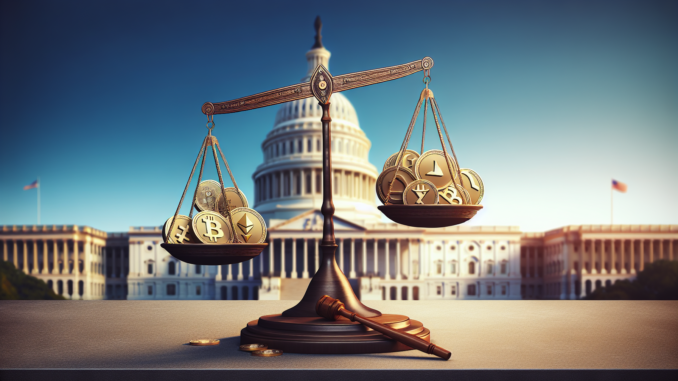
The caution of US regulatory authorities towards cryptocurrencies and its impact on the financial industry have recently gained new insights. According to an article published by Reuters, documents have shown that while US regulators have taken a cautious stance towards crypto, they have never instructed banks to throttle the sector. This brings new perspectives for associations from the crypto world and the banking landscape.
The Background: Regulatory Environment in the USA
The relationships between US regulatory authorities and the crypto industry have often been tense in recent years. A variety of factors influence the regulation of cryptocurrencies in the USA, with the focus on ensuring financial stability. Banking supervision is at the center of this, as it seeks to protect bank customers and the banking system. Amid concerns about security and the need to prevent money laundering, regulators, including the Federal Reserve, the Office of the Comptroller of the Currency (OCC), and the Federal Deposit Insurance Corporation (FDIC), have approached crypto banks with a cautious approach.
The Main News: Disproven Claims of Bank Blockage
According to new documents, US regulators have harbored some skepticism towards cryptocurrencies, but they have never explicitly instructed banks to block or reject the crypto sector. This clarification debunks claims that banks have been specifically discouraged from working with crypto companies. Reuters reports that despite the caution, no concrete steps have been taken to strangle the crypto-friendly banking landscape. This revelation brings clarity and relieves regulators of accusations of harsh disposition against cryptocurrencies.
Analysis: The Impact on the Crypto and Banking Industry
This new information could have far-reaching implications for how crypto-financial institutions and investors develop their business strategies. While the clarification could dispel some concerns among banks, there is still a palpable uncertainty in regulatory matters. Banks that may have previously hesitated to expand their services to the crypto sector might now take a more open stance. Moreover, this development could also lead to a more stable collaboration between crypto companies and conventional financial institutions. Another positive aspect could be the promotion of innovation within the industry, with trust and collaboration being strengthened.
Risks and Uncertainties Remain
Despite the positive news, the regulatory environment remains complex and unpredictable. Crypto companies must still be able to adapt to changing legal requirements. Another risk lies in potential market volatility that could be triggered by regulatory announcements. This could affect the investment strategies of companies and investors alike. Market participants should be prepared to respond flexibly to potential challenges and adjust their positions accordingly.
Conclusion: A Balancing Act Between Risk and Innovation
The revelation that no direct instruction was given to block crypto transactions by banks is a positive step towards building trust and transparency in the field of crypto regulation. However, there is a long way to go before clarity and a coherent regulatory framework are established. Nevertheless, such information offers market participants the opportunity to adjust their strategies with a clearer understanding of the regulatory dynamics. The forward-looking collaboration between the crypto and financial sectors will be more crucial than ever to pave the way for innovative and secure solutions.
Leave a Reply